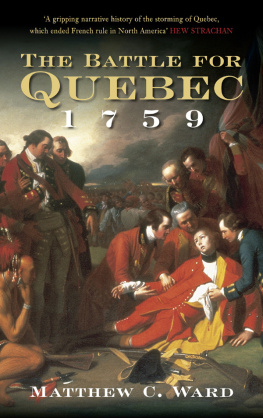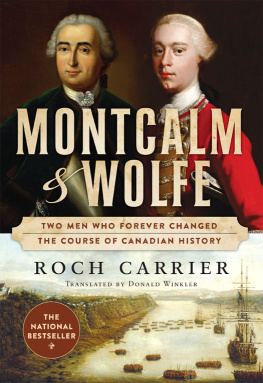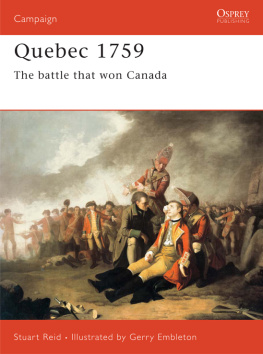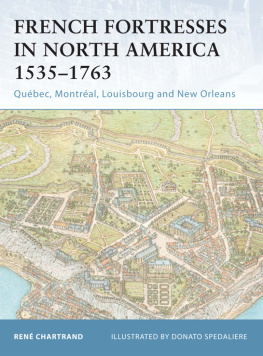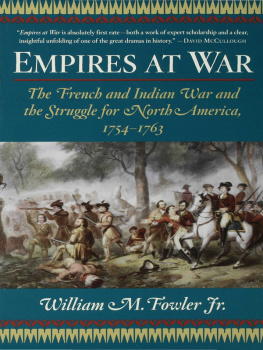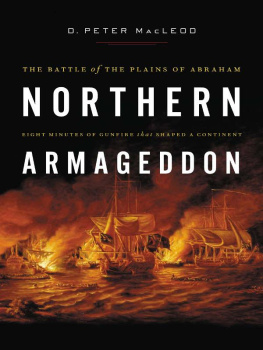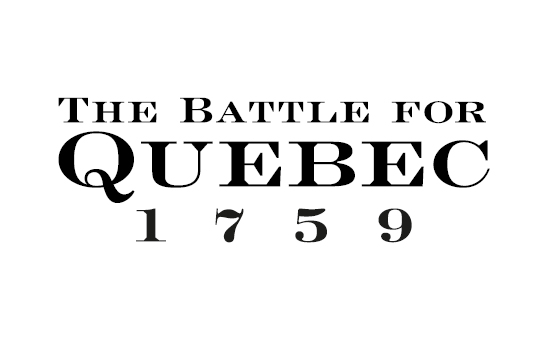

First published 2005
This edition published 2009
The History Press
The Mill, Brimscombe Port
Stroud, Gloucestershire, GL5 2QG
www.thehistorypress.co.uk
This ebook edition first published in 2016
Matthew C. Ward 2005, 2009
The right of Matthew C. Ward to be identified as the Author of this work has been asserted in accordance with the Copyrights, Designs and Patents Act 1988.
This ebook is copyright material and must not be copied, reproduced, transferred, distributed, leased, licensed or publicly performed or used in any way except as specifically permitted in writing by the publishers, as allowed under the terms and conditions under which it was purchased or as strictly permitted by applicable copyright law. Any unauthorised distribution or use of this text may be a direct infringement of the authors and publishers rights, and those responsible may be liable in law accordingly.
EPUB ISBN 978 0 7509 8012 8
Typesetting and origination by The History Press
eBook converted by Geethik Technologies
Contents
About the Author
M atthew Ward is lecturer in history at the University of Dundee. He is one of the worlds leading experts on the Seven Years War. His other books include Breaking the Backcountry: The Seven Years War in Virginia and Pennsylvania, 1754-1765. He lives in Dundee.
Introduction
O n the morning of 13 September 1759, the armies of Britain and France clashed on the Plains of Abraham outside the city of Quebec in French Canada. The battle was an overwhelming victory for the British forces, but during the conflict the commander of the British forces, General James Wolfe, received a mortal wound. Dying before the battle was even finished, he guaranteed himself a place in the hearts of the British nation as a man who had given his very life for his country. At almost the same time that Wolfe received his fatal wound, the commander of the French forces, General Louis-Joseph, Marquis de Montcalm-Gozon de Saint-Vran, also received a fatal wound. Dying in agony the next day, his death seemed to epitomise the end of the French regime in Canada.
The deaths of Wolfe and Montcalm, full of pathos and drama, loom over the British campaign to conquer Canada. For many authors and historians the conquest of Canada is the story of Wolfe, and its defence is the tale of Montcalm. The conflicts between both generals and their subordinates, which influenced their conduct of the war, have become the story of the campaign, as epitomised by Francis Parkmans monumental Montcalm and Wolfe, a sweeping work that unfortunately is almost as much fiction as fact. Attention to the actions of the commanders during the campaign has further intensified because ever since their deaths there has been a fierce debate over the relative merits of their command. Historians have debated whether Wolfe was really no more than a good regimental officer, promoted beyond his capacity, whether Montcalms disdain for his Canadian troops was responsible for his ultimate defeat, or whether the machinations of the governor of Canada, Pierre de Rigaud de Vaudreuil, served to undo his efforts to defend the country.
Such questions, which focus purely on the actions and decisions of the armies commanders, portray the British campaign to conquer Quebec through a very narrow perspective. If the campaign is about Montcalm and Wolfe then their deaths must mark the end of the campaign, and the battle of the Plains of Abraham becomes the climactic conclusion of the struggle. Such a view is surely wrong. British control of Quebec was far from secure until the arrival of the British relief fleet in May 1760. Indeed, it could be argued that the arrival of the British fleet in May 1760, though lacking all the drama of the battle of the Plains of Abraham, was in many ways as important as the battle itself. Even with the arrival of the British fleet, the conquest of Canada would take another determined summers campaigning. The British conquest of Canada was not just one climactic battle, but a protracted campaign which lasted for eighteen months.
A focus on the commanders also fails to acknowledge adequately the roles of the thousands of men who fought in the British and French forces. The fate of Canada was determined not just by the actions of a handful of officers but by the actions of thousands of soldiers and sailors. These soldiers did not form one homogeneous social group. Both armies contained soldiers from widely different backgrounds: from the Canadian militia, skilled in woodcraft, to the highly disciplined regular troupes de terre; from the American ranger companies to the fearsome Scottish Highlanders of Frasers Regiment. In addition to the thousands of soldiers and sailors, hundreds of Native Americans fought alongside the French and hundreds of British civilians accompanied the British army, as sutlers (sellers of supplies and provisions), labourers, nurses and washerwomen. Collected from around the globe, the two armies which met in Canada were vibrant military communities with different traditions and skills. Their role in the campaign, though more subtle than the decisions of their commanders, was equally, if not more, important.
A focus on the commanders also ignores the experiences of civilians during the war. For civilians this war was markedly different from previous wars. The campaign in Canada was in many ways a total war. The French mobilised the Canadian civilian population to resist the British onslaught. Thousands of Canadian farmers the habitants of the St Lawrence Valley participated in the militia and exposed British troops to constant attacks from French skirmishing parties. Women and children hauled supplies and provided military intelligence. In retaliation, the British waged total war on the civilian population of Canada, destroying villages, crops, and livestock, rounding up women and children and forcing them from their homes. In so doing, the British pushed the eighteenth-century concepts of limited war and the rules of war to their very limits, if not beyond.
There were other forces that also determined the fate of Canada. Some of them could be called long-term structural developments in Europe, far beyond the immediate scope of the campaign. The expansion of British financial institutions, which enabled the government to wage such an expensive campaign, the securing of British naval superiority and the development of new naval and military tactics all aided the British victory. Pure luck also played an important role. Before the 1759 expedition Canadians seemed to have been protected by divine providence. All previous expeditions against the city and colony had failed miserably. During the Quebec campaign, while the British had their share of misfortune, when luck and chance most mattered, particularly on the night of 12-13 September, fortune favoured the British.
This book examines the British campaign for Canada from its origins in the cabinet offices of London and Versailles to the final capitulation of the colony in September 1760. It views the campaign in its entirety and does not concentrate solely on the events of 13 September 1759. The focus is not purely on the actions and decisions of commanders but also examines the experiences of ordinary soldiers and civilians in the British and French armies during the war, and the wars broader impact on the civilian population of Canada. It demonstrates how the campaign deteriorated from the civilised war, fought very much in a European fashion, to the irregular war of the worst shape berated by Brigadier-General George Townshend. For both soldiers and civilians, this irregular war was as important a part of the Campaign for Canada as the more regular combat on the Plains of Abraham.
Next page
